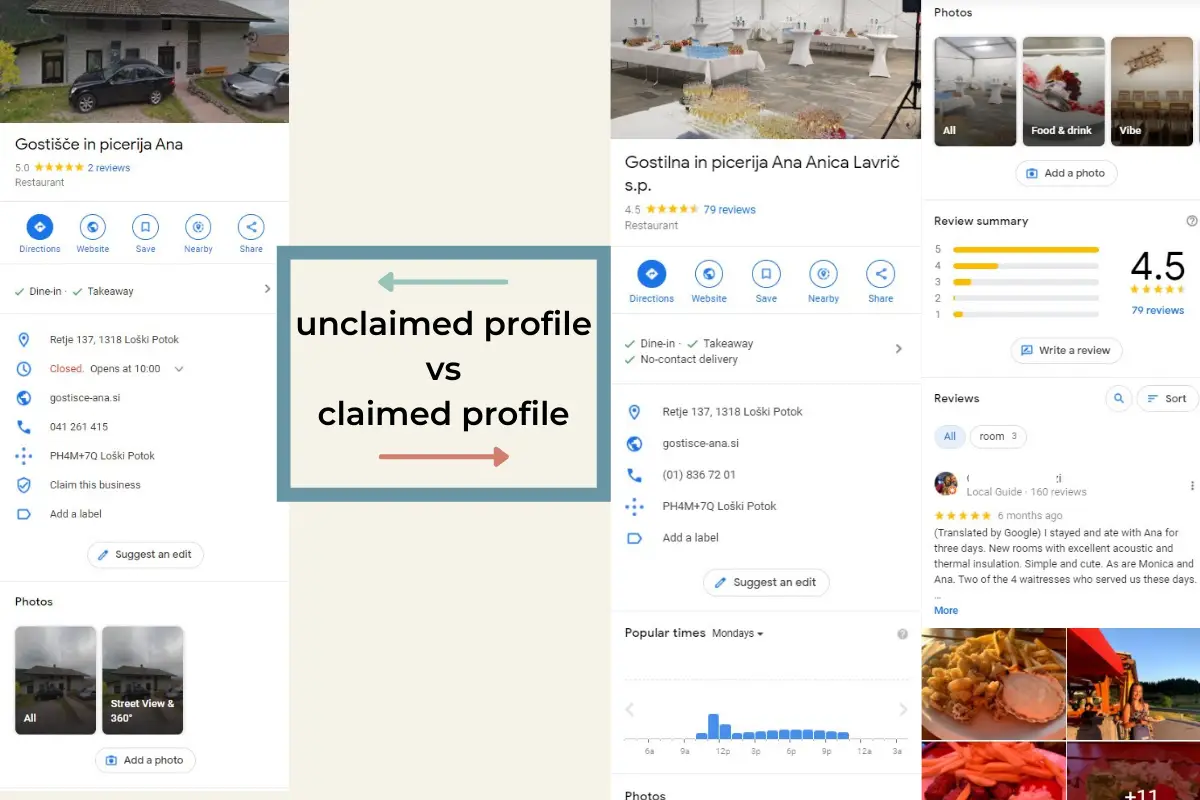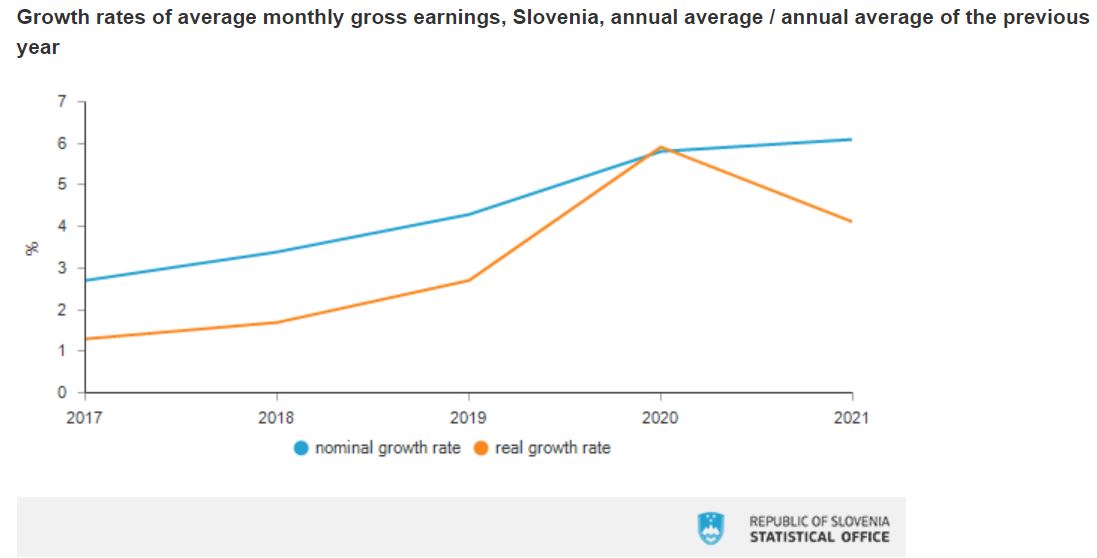Business
STA, 17 February 2022 - Slovenian company PharmaHemp has started building an EUR 11 million facility to produce and process hemp products in Komenda, north of Ljubljana, in what it says will bring together the broadest range of services in the field of hemp in Europe.
The 3,320-square metre hemp factory will be "the most modern and technologically-advanced infrastructure for the processing and production of raw materials and products from hemp", the company announced in a press release.
The investment into production, storage and office premises is to enable the company to later expand to the pharmaceutical business of production of active substances suitable to be built into various types of cannabis-based medications.
"The expansion will add to the company's existing portfolio of technological solutions in research, development, processing, production and laboratory testing of raw materials and industrial hemp products," reads the release from PharmaHemp.
The company says it is one of few to have successfully completed the validation process for two applications for novel food authorisation with the European Commission, for cannabidiol (CBD) and for hemp extract. The procedure validates the safety of products containing CBD and other cannabinoids.
According to information posted on its website, PharmaHemp started out as a family business in the former Yugoslavia in 1965 before introducing in 1995 a pioneering line of body care products enriched with cold pressed hemp oil.
Lean more about PharmaHemp
STA, 15 February 2022 - The average gross pay in Slovenia rose by 6.1% in nominal terms in 2021 to EUR 1,970, the fastest pace in five years. The increase was almost equally driven by the public and private sectors, show the latest Statistics Office figures.
While the nominal increase is the fastest in five years, the real increase was a more modest 4.1% due to high inflation last year.
The average pay rose by 6.5% in the public sector, to EUR 2,337, and by 6.1% in the private sector, to EUR 1,941.
In December, the average wage dropped by a percent compared to the month before, which the statisticians attribute to lower Christmas bonuses paid out for December since most such bonuses come with November wages.
The average net pay rose by 5.1% in nominal terms and 3.1% in real terms to EUR 1,270.
STA, 14 February 2022 - A press conference on online fraud heard on Monday that this type of crime is on the rise in Slovenia, with national Computer Emergency Response Team (SI-CERT) recording 3,197 reports of online fraud last year, of which 30% were reported cases of phishing.
Maruša Maligoj of SI-CERT told the virtual press conference hosted by the NKBM bank that the actual number was actually much higher, as many fraud attempts remained unreported.
Almost a thousand cases of phishing were reported last year, with the most phishing attacks being attempted in the name of delivery services, while online advertisements and banks were also often imitated.
The number of cases of fraud in the form of fake loan offers is also increasing. In 2020, 94 such cases were detected by SI-CERT, and 137 in 2021.
This is also a consequence of the Covid-19 pandemic, as people experienced financial difficulties while banks tightened their conditions for obtaining loans, said Maligoj.
Meanwhile, the police dealt with more than 600 cases of fraud last year, with total damage amounting to more than EUR 12 million, which is a 50% increase in the number of cases and a 150% increase in damage compared to 2020.
David Gracer of the Criminal Police Administration added that the increase in the number of cases of fraud continued this year, as the police had already dealt with more than 80 cases, with total damage amounting to more than EUR 2.5 million.
Police data also show that investment fraud is among the most common types of fraud, followed by e-mail breaches, romance scams, advance-fee scam, fake loan scams, remote access scams under the pretext of technical support and money mules.
Božidar Dajčman, the head of physical and information security management department at NKBM, noted that Slovenian banks had been monitoring phishing attempts and attacks on customers for at least eight years.
"There has been more of such attacks recently. An increase in such attempts was observed in 2021, and the trend continued in 2022 and we do not expect this to change any time soon," he added.
STA, 10 February 2022 - The Slovenian start-up Mediately has raised EUR 7.2 million in Series A funding to expand its mobile app for doctors to the largest markets in Europe. The app facilitates access to medical knowledge for doctors by simplifying an adapting complex and extensive medical content.
Mediately has raised the funds to expand from the eight markets in Europe in which it is currently present. The round is led by Piton Capital, and joined by VentureFriends and the current investors Silicon Gardens, LAUNCHub Ventures, and smaller angel investors.
"Organic growth, which is mostly spread by word of mouth, an impressive number of doctors who use the app every day, and outstanding user reviews show that the team has created an app with really high value for doctors," said Piton Capital investor Mira Mihaylova.
Mediately noted that, in addition to monitoring innovation in medicine when working with patients, doctors must also be aware of the relevant regulations, restrictions in prescribing medications, and follow treatment guidelines and diagnostic measures.
Doctors often operate with insufficient information for making the best treatment decisions, as software in hospitals and other healthcare facilities is mostly intended for administration, with less emphasis on informing doctors, the company said.
It added that other medical mobile apps usually do not take into account local specifics, so doctors are often left to their own devices and obtain information from various sources, which is time-consuming.
"Doctors should have access to the best support for decision-making ... and this is the only way they can take the best care of their patients' health, and we want to help them with that," said Mediately executive director Blaž Triglav.
The app, initially available only to Slovenian doctors, is today used by 80-90% of Slovenian doctors on a daily basis, the company said, adding that the positive response at home had led to the successful expansion to several European markets.
VentureFriends founding partner Apostolos Apostolakis said that "Mediately has a high potential to become a leading platform of medical knowledge for European doctors", adding that the app was also a strong communication channel for pharmaceutical companies.
Mediately’s website is here, although without an English version yet. You can also take a look at the app for Android or iOS
The tourism and hospitality industry was uniquely affected by the pandemic. We were left without visitors, bookings, and any sign of returning to normal. The good news is that visitors are coming back. The World Travel and Tourism Council (WTTC) anticipates tourism could contribute $8.6 trillion USD to the global economy this year. This is just below pre-pandemic levels.
Imagine international tourists taking a road trip through Slovenia and after a long day they want to find a place to stay the night and somewhere to eat. They will most likely use their phones to search for nearby accommodation or food recommendations.
If presented with two options on Google, where one is using their Google Business Profile to provide weekly updates and allow customers to leave glowing reviews, while the other never even claimed their profile and have no photos to show that they still exist. It should be no surprise that the business with content and social proof is more likely to be chosen.

Besides which one the customer will choose, the businesses with claimed profiles and fresh content are rewarded with better real estate on Google Maps and search results.
In 2021, searches for “along my route” increased 1000%.
Tourists are more tech savvy than previously which means businesses need to digitize and get online.
Wallflower Studios is hosting a series of free webinars in 2022 to help support Slovenian-based businesses in the industry. The first of which will cover Google Business Profile; the benefits, how to set up your account, and how to use it to attract new customers.

Google Business Profile (previously Google My Business) is a free tool that can truly benefit your business when used strategically.
The webinar will take place on 2 different days to accommodate different schedules. When registering please use this Google Form and select your preferred date; Thursday 24 Feb (19:00) or Saturday 26 Feb (10:00).

Visit Wallflower Studio’s official site for more details.
STA, 9 February 2022 - Corwin, a Slovak developer present in Slovenia for over four years, and its Czech partner Hartenberg have purchased two large plots in the centre of Ljubljana to build several hundred new flats, new offices and a shopping mall, the company said on Wednesday. Construction is expected to start around 2024.
The first plot of almost 6,300 square metres is located along Masarykva Street and was sold to the two investors by the Slovenian bad bank BAMC.
Under the current spatial plan, housing or office buildings can be constructed on it.
The second plot extends on almost 16,500 square metres behind the Slovenijales office building south of Linhartova Street.
It was bought from Triglav Nepremičnine, insurer Triglav's real estate arm.
As the newspaper Dnevnik recently reported, offices, hotels, hospitality or retail infrastructure can be built on it but not housing.
"Both plots have the potential to strongly enrich the surroundings and significantly impact on the image of the new Ljubljana centre," Robert Mitterpach, financial director and chairman of the board at Corwin, said in the news release.
The investors have thus invited several respectable architecture studios from around the globe to take part.
Gehl Architects, a Danish studio which has also transformed Times Square in New York, was invited to prepare the main project in Linhartova Street, while Austria's AllesWirdGut will design the buildings.
Details about the Masarykova Street project, which will be part of a major renovation around the train station as part of a public-private partnership, are not yet known.
However, Corwin said that Vilharia, an office building designed by Danish Schmidt Hammer Lassen that will start being built at the end of 2022 near Ljubljana's main train station, will serve as a role model. Corwin hopes to bring together local construction experts and a leading architecture studio.
Corwin said that Vilharia was worth tens of millions of euros while it billed it as the greenest building in Slovenia.
The Slovak developer is meanwhile building a housing complex in Ljubljna's Šiška borough; Kvartet is its first major project in Slovenia.
The EUR 45 million investment will feature four 15-storey blocks of flats. Construction work, launched in August 2020, is in full swing.
STA, 9 February 2022 - A total of 46% of Slovenian employers intend to raise wages by 5% in the first half of this year, shows Manpower's survey on salary and employee benefits trends. Employers cite retaining talent in their organisations as the main reason for the increase.
According to Manpower, 25% of the employers expect to raise pay between 6% and 10%, 4% expect a rise of 11-15%, and 1% a rise of more than 21%.
A total of 24% of the employers, on the other hand, do not intend to increase pay.
Although the majority of the employers plan to increase wages, 74% do not see the need to increase other benefits and financial incentives.
In addition, 43% of the country's employers expect to increase wages for all employees in the company in the first half of 2022, whereas 12% will do so for 50-80% of their employees. 21% of the employers will do this for between 20-50% of their staff, and 24% intend to increase wages for up to 20% of workers.
The main aim of employers seems to be to retain talent in their firms. "When asked whether the planned increase in salaries and/or additional benefits is more related to retaining or attracting new employees, 68% of Slovenian employers said it is a retention measure, while 14% said it is a measure to attract new employees," Manpower said.
Planning to announce wage increases to retain staff are most companies in manufacturing, IT, consulting services, banking, insurance and finance, telecommunications, science, healthcare and pharmaceuticals, education, transport and logistics, and construction.
Tourism, car industry and outsourcing are the industries where most companies are expecting pay increases to attract new workers.
The survey notes that the results may have been influenced by employers' behaviour to align the minimum wage with consumer price inflation - but only in industries where the average wage is lower or where a higher share of employees are paid the minimum wage.
The survey for the first six months in 2022 is part of a wider Manpower survey covering four countries in Southern and Eastern Europe, including Slovenia, Croatia, Serbia, Bulgaria and Bosnia-Herzegovina. In Slovenia, companies from all over the country and from different industries were included. Manpower conducts this survey at the end of each half-year period.
STA, 7 February 2022 - Interest among Slovenian businesses to get showcased at the Dubai Expo has been growing. The country's pavilion has hosted around 400,000 individual visitors, more than 200 delegations and over 100 business events so far, Slovenia's Expo commissioner Matic Volk said on Monday.
In terms of hosting representatives of the business sector, the numbers have already exceeded the plans made before the World Expo. "We are quite satisfied," added Volk.
Volk expects the current momentum to be maintained in the last two months of the Expo. "In the second half of February and in March, our programme is quite busy as well, as interest in the Dubai Expo is very high," he explained.
"More and more Slovenian companies see Slovenia's Expo pavilion as an excellent opportunity to assess the situation on the ground and the possibilities to enter the market in Dubai, the UAE and the wider region," said Volk.
The Slovenian team is also one of the most active in terms of the business side of the Expo. "Practically all of our business events were packed with foreign guests, which allows us to establish quality contacts at all levels," added Volk.
Several business agreements have already been signed at the Slovenian pavilion, and many negotiations are still ongoing, while Slovenia has also recently strengthened cultural and entertainment activities at the Expo.
The Slovenian National Day on Tuesday, coinciding with the Culture Day holiday in Slovenia, is planned as one of the highlights, with Foreign Minister Anže Logar and Economy Minister Zdravko Počivalšek in attendance as well.
The event will be marked by ceremonies at the Expo's main venue, Al Wasl Plaza, as well as at the Slovenian pavilion, and a concert showcasing Slovenia's cultural heritage and contemporary artistic creativity.
STA, 4 February 2021 - The Finance Ministry has unveiled a new draft law on cryptocurrency taxation. It proposes a 10% taxation rate and a general tax exemption on up to EUR 10,000 of redeemed cryptocurrency per year. The ministry expects public feedback by 21 February.
The proposal regulates the tax on cryptocurrencies, which are defined as a digital form of currency without an official status, issued neither by a central bank nor by another public authority.
The proposed solutions would apply to all natural persons who pay taxes in Slovenia, but not to legal persons and natural persons that hold cryptocurrencies as a business asset.
A natural person who buys and sells cryptocurrency in their own name and on their own account would not be considered to be carrying out a business activity, regardless of the number of cryptocurrency transactions carried out.
Under the proposal, the tax would be paid on the value of the cryptocurrency transactions realised in a calendar year. The exchange of cryptocurrency into fiat currency and the purchase of goods, services or other property with cryptocurrency would all count as redemption.
Meanwhile, a tax exemption would apply to a maximum of EUR 10,000 of the total amount of cryptocurrency realisations in a single calendar year.
The tax base would be determined by deducting the amount of the exemption from the sum of the value of all redemptions in a calendar year.
The resulting positive difference would then be reduced by normalised costs equal to 50% of this difference, with a tax rate of 10%.
If a person were to make a loss in a calendar year, they would have to prove this loss to the authorities and report it on their tax return.
Individuals would have to calculate the tax themselves, as the sum of the value of tax for each realisation of cryptocurrency during a calendar year. They would have to submit the data in an online tax return by 28 February for the previous year.
An individual who fails to submit a tax return or to provide adequate documentation for a set period of time could face a fine of between EUR 250 and EUR 400, while those who submit incomplete or false data could face a fine of up to EUR 5,000.
The Finance Ministry estimates that under this proposal, the state budget revenue would amount to between EUR 100,000 and EUR 500,000 per year in the first few years.
The first proposal on cryptocurrency taxation was put forward by the ministry in October last year.
At that time, the proposal also provided for a 10% tax for natural persons in the case of exchanging cryptocurrency for fiat currency and purchases made with cryptocurrency, without normalised costs.
The threshold for tax liability was set at EUR 15,000.
An alternative option offered at the time was to pay tax on the profits made, which would be the difference between the value of the cryptocurrency at the time of realisation and at the time of acquisition.
STA, 1 February - The Constitutional Court has annulled rulings by two courts that rejected borrowers' request for annulment of contracts on loans in Swiss francs and for a refund of overpayments, in what is the first decision of Slovenia's top court related to issue of Swiss franc loans.
The Constitutional Court has found that the rulings did not adequately address the concerns regarding the assessment of the standard of banks' duty of disclosure and that of fairness, and has returned the cases for reconsideration.
The decision relates to the rulings of the Ljubljana District Court from July 2019 and of the Ljubljana Higher Court from May 2020, which were appealed by spouses Igor and Simona Ajdnik.
As the highest court in the country said in its decision, the appellants had noted the sensitivity of the issue as they had taken a Swiss franc loan to purchase a family home, and the hazardous nature of the deal.
They also drew attention to the detrimental consequences of the deal and the increase in the price of the loan for their social standing and family life, and noted the bank's knowledge of the risks of the foreign exchange rate market.
The court said that the challenged rulings had been based on the premise that the fairness of the main subject of the contract, i.e the Swiss franc currency clause, is not assessed in the case when the duty of disclosure is fulfilled, and the assessment that the duty of disclosure had been fulfilled in the case in question.
The two courts had assessed that the currency clause had not been unfair, supporting the notion that the bank had acted in good faith by stating that when the loan contract was being concluded, it could not have anticipated major changes in the exchange rate to the detriment of the clients, and that it did not give specific or misleading guarantees.
The Constitutional Court also noted that the two courts had argued that there was no significant imbalance in the contractual rights and obligations as the bank had also borne the currency risk and was obliged to provide adequate collateral, with change in the currency ratio not bringing any benefit.
The case law of the EU Court of Justice stipulates that in the case of a Swiss franc loan, the client must be informed in clear and understandable language about all mechanisms that affect the repayment of the loan and their consequences in order to take a prudent and informed decision.
If this is not the case, the court must make an assessment of fairness, i.e. whether the bank acted in good faith or not, and whether it acted in line with the principle of conscientiousness, and whether there is a significant imbalance in rights and obligations between the parties.
Due to the precedent importance of the constitutional issues raised by the positions taken by the two courts, the Constitutional Court decided to test these positions in their entirety, meaning with regard to the duty of disclosure and with regard to fairness.
It said that it was not clear from the explanatory notes of the challenged rulings which explanation by the bank could make the borrower be aware of the actual consequences of a major depreciation of the domestic currency or a growth of the Swiss franc currency rate on the amount of the loan obligation.
As this is one of the key elements of the standard of duty of disclosure, the courts violated the right to a reasoned court decision referred to Article 22 of the constitution.
With regard to the assessment of fairness, the appellants had been drawing attention throughout the proceedings to the professionally qualified knowledge of the bank of the risks of the foreign exchange market, the Constitutional Court said.
On the basis of the 1993 EU directive on unfair terms in consumer contracts and the criteria developed by the Court of Justice for its interpretation, the arguments by the appellants constitute an element of assessment of fairness of a contractual condition that should be taken into account.
As the courts did not take a position on these arguments, they violated the appellants' right to a ruling under Article 22 of the constitution, the Constitutional Court added.
The decision, published on Tuesday, was taken in a five-to-three vote, with constitutional justice Rok Svetlič issuing a dissenting opinion, and Constitutional Court president Matej Accetto issuing a concurring opinion.
The Bank Association of Slovenia said in a response that the Constitutional Court had not come to the conclusion that contracts on loans in Swiss francs were null and void, but that it had mainly examined certain positions taken by courts.
"The Constitutional Court noted that the lower instance courts did not take a position on all essential arguments by the appellants and the evidence. These procedural reasons thus refer to courts and not to banks," the association added.
It also noted a dissenting opinion that says that if banks were to be obliged to take into account (all) personal circumstances of clients in the future, the effect would be unfavourable precisely for borrowers.
The association added that the decision of the Constitutional Court further confirmed that the cases of Swiss franc borrowers should be assessed on an individual basis and that regulating these issues by means of legislation was not appropriate.
This comes as the National Assembly is debating a bill that would distribute the cost of the surge in the value of the Swiss franc in 2015 between banks and some 32,000 borrowers who saw the cost of their debt in euros soar as a result.
Slovenian banks came out strongly against the bill, saying that it retroactively encroached on the lawfully concluded contracts, which was not harmful only for banks but for the entire economy.
STA, 29 January 2022 - The government has confirmed a EUR 200 million package of aid for households and companies to mitigate energy-price hikes. An EUR 106 million energy voucher scheme for households will be coupled with aid for companies and farmers worth EUR 70 million, lower network fees for electricity, and lower excise duties on heating oil and petrol.
The electricity network fee will be waived for three months starting on 1 February, with excise duties on electricity, heating oil and petrol being cut to the lowest permissible level, Prime Minister Janez Janša told the press after Saturday's government session.
Electricity excise will be halved, whereas fuel excise duties will be reduced by about two cents per litre for regular petrol, five cents for diesel, eight cents for heating oil and one cent per cubic metre of natural gas.
As a result of these waivers and cuts, Janša estimates electricity bills will go down by 30-35%.
Energy vouchers, worth EUR 150, will be available to about 710,000 beneficiaries, including recipients of income support and welfare, recipients of child support with income of up to EUR 680 per person, pensioners with under EUR 1,000 in pensions, the disabled, and large families. Families with four or more children will get an extra EUR 50 on top.
One-off aid will be available to an estimated 17,500 companies and 41,000 farms. The payments will depend on company or farm size and energy intensity, according to Economy Minister Zdravko Počivalšek.
Among companies, those with at least five employees and whose energy expenditure accounted for at least 5% of revenue in 2019 or at least EUR 10,000 will be eligible.
Companies must apply for aid with the Financial Administration and will receive the money by 20 April.
"We are confident this will help until prices ease off," Počivalšek said.
The energy vouchers and aid to companies and farms comes in a new bill that must be passed by parliament. The other measures are in the form of direct government decrees.
The aid comes after energy prices have soared in recent months in lockstep with surging global prices.
Companies in particular have for weeks beseeched the government to step in, warning that the current level of prices risked putting many energy-intensive industries out of business.






